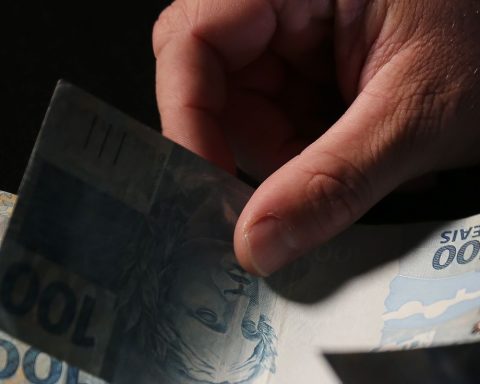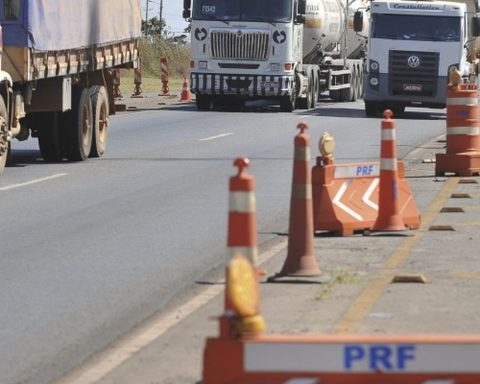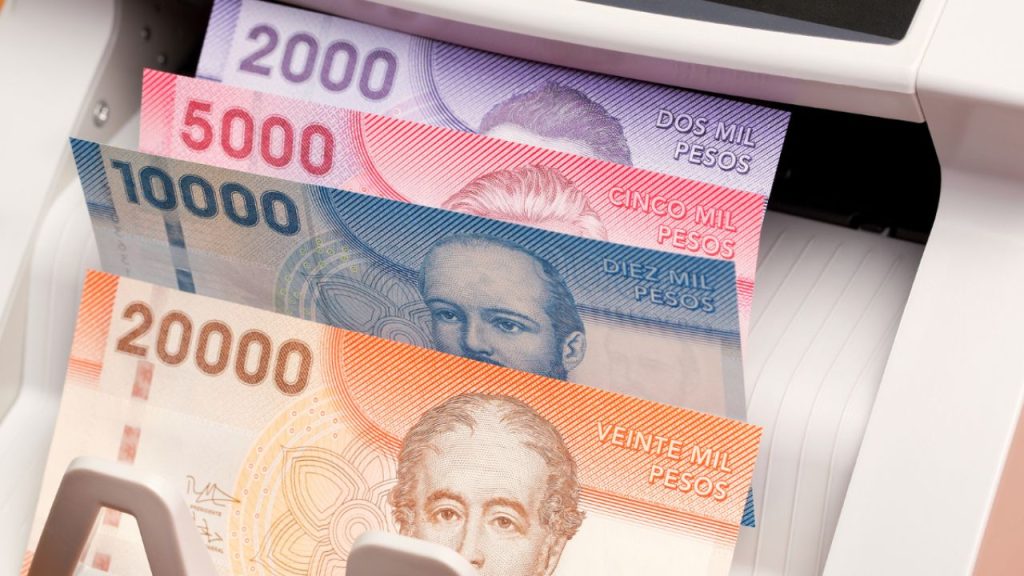The country’s external accounts had a negative balance in June 2024, reaching US$ 4.029 billion, the Central Bank (BC) reported this Thursday (24). In the same month of 2023, the deficit had been US$ 182 million in current transactions, which are the purchases and sales of goods and services and income transfers with other countries.
The year-on-year decline is the result of a US$3.3 billion drop in the trade surplus, mainly due to a reduction in the value of exports. Contributing to the negative result in current transactions, deficits in services and primary income (payments of interest and profits and dividends from companies) increased by US$399 million and US$46 million, respectively. Secondary income also saw a reduction in the surplus, of US$148 million.
In the 12 months ending in June, the current account deficit totaled US$31.453 billion, 1.41% of the Gross Domestic Product (GDP, the sum of goods and services produced in the country), compared to the negative balance of US$27.605 billion (1.23% of GDP) last month. Compared to the equivalent period ending in June 2023, there was a decrease; at that time, the deficit in 12 months totaled US$39.281 billion (1.93% of GDP).
According to the head of the Central Bank’s Statistics Department, Fernando Rocha, the current account scenario is quite robust and has been showing a downward trend in deficits over the past 12 months, which has reversed since March of this year. Even so, the external deficit is low by Brazilian economic standards and is financed by long-term capital, mainly by direct investments in the country, which have good quality flows.
Direct Investment
The data on Direct Investment in the Country (IDP) in June totaled US$ 6.269 billion, the best result since June 2013, when it was US$ 10.3 billion. According to Rocha, this shows “a great tranquility in Brazil’s external accounts”.
In the period from January to June 2024, the deficit in current transactions was US$ 18.691 billion, against a negative balance of US$ 8.983 billion in the first half of 2023. In this case, the result is also explained by the reduction in the trade surplus (by US$ 4.2 billion) and, mainly, by the increase in the deficit in the services account (by US$ 5.2 billion).
According to Fernando Rocha, since last year, transactions in services have been quite relevant to the dynamics of current transactions and, consequently, the dynamics of the Brazilian economy.
In the case of the trade balance, there was a reduction in the surplus due to the greater growth in imports. Exports had low growth in the first half of the year, 0.6%, mainly explained by the reduction in international prices; nevertheless, as they increased on top of last year’s record, this is the highest export value in the historical series for the first half of each year.
Trade balance
Exports of goods totaled US$29.322 billion in June, a decrease of 1.8% compared to the same month in 2023, due to the fall in commodity prices and the increase in freight. Meanwhile, imports totaled US$23.278 billion, an increase of 13.2% compared to June last year.
With the results of exports and imports, the trade balance closed with a surplus of US$ 6.044 billion last month, compared to the positive balance of US$ 9.299 billion in the same period of 2023.
Until last month, transactions involving crypto assets were included in the trade balance accounting, but, due to international standardization, they are no longer considered as goods and have become non-produced non-financial assets, recorded in the capital account.
From 2016 to May 2024, net purchases of cryptocurrencies by residents (from non-resident sellers) totaled US$39.7 billion. With the revision, this amount simultaneously represented a reduction in the current account deficit and an increase in the capital account deficit. Last month, the deficit in this item was US$1.297 billion.
services
The deficit in the services account – international travel, transportation, equipment rental and insurance, among others – totaled US$ 4.144 billion in June, compared to US$ 3.745 billion in the same month of 2023, growth of 10.7%.
According to Fernando Rocha, there is growth in the services trade flow, with a record in both revenues and expenses last month, and with diversification in the account. In the year-on-year comparison, one of the biggest increases, 82.8%, was in the deficit in intellectual property services, linked to streaming services, totaling US$ 793 million. Telecommunications, computing and information services, also driven by operations through digital platforms, reached US$ 476 million.
“This shows the greater internationalization and digitalization of the Brazilian economy and a greater demand from residents for imported services,” said Rocha, in a virtual press conference to present the results.
Another highlight is net transportation expenses, which grew 18.2%, totaling US$ 1.388 billion, as a result of increases in the trade flow and freight prices.
In the case of international travel, in June, the deficit in the account closed with a drop of 18.5%, reaching US$ 740 million, as a result of reductions of 1.5% (to US$ 500 million) in revenues (which are the expenses of foreigners traveling to Brazil) and 12.4% in expenses of Brazilians abroad (to US$ 1.241 billion).
Laces
In June 2024, the deficit in primary income – profits and dividends, interest payments and wages – reached US$ 6.166 billion, slightly above the US$ 6.120 billion recorded in June last year. Normally, the account is in deficit, since there are more investments by foreigners in Brazil – and they remit the profits abroad – than by Brazilians abroad.
Net interest expenses totaled US$2.338 billion in June this year, 5.5% lower than the result for May 2023. In the case of profits and dividends associated with direct and portfolio investments, there was a deficit of US$3.865 billion in June, an increase of 5.9% year-on-year.
The secondary income account – generated in one economy and distributed to another, such as donations and remittances of dollars, without any counterpart in services or goods – had a positive result of US$ 237 million last month, against a surplus of US$ 385 million in June 2023.
Financing
Net inflows of direct investment (FDI) into the country increased year-on-year. FDI totaled US$6.269 billion last June, compared to US$1.950 billion in the same period of 2023, the result of net inflows of US$4.313 billion in equity and US$1.957 billion in intercompany transactions.
The accumulated FDI in 12 months totaled US$ 70.325 billion (3.15% of GDP) in June 2024, compared to US$ 66.005 billion (2.95% of GDP) in the previous month and US$ 66.990 billion (3.29% of GDP) in the period ending in June 2023.
When a country registers a negative balance in current transactions, it needs to cover the deficit with investments or loans abroad. The best way to finance a negative balance is FDI, because the resources are invested in the productive sector and are usually long-term investments.
In the case of portfolio investments in the domestic market, there was a net inflow of US$554 million in June 2024, consisting of net revenues of US$1.718 billion in debt securities and net outflows of US$1.164 billion in shares and investment funds. In the 12 months ended last June, portfolio investments in the domestic market totaled net inflows of US$45 million.
The stock of international reserves reached US$357.841 billion in June 2024, an increase of US$2.281 billion compared to the previous month.
Revisions
In this edition of the external sector statistics, the BC presented revisions to the balance of payments. This month, the ordinary revision refers to the incorporation of the results of the survey of Brazilian Capital Abroad (CBE) and two methodological revisions were also carried out, involving transactions between residents and non-residents related to crypto assets (from 2016) and games and bets (from 2023).
For 2023, the revision reduced the current account deficit by US$9.1 billion, from US$30.8 billion (1.42% of GDP) to US$21.7 billion (1% of GDP). This reduction was due to positive changes in the trade balance (US$11.7 billion), entirely due to the methodological reclassification of transactions with crypto assets, and in secondary income (US$1.7 billion), partially offset by the increase in the deficits in services (US$2.5 billion) and primary income (US$1.8 billion).
The revision also impacted external sector statistics for the period January to May 2024, with improved estimates based on information captured in the 2023 annual CBE, and methodological revisions for cryptoassets and gaming and betting. The current account deficit for the period was revised from US$21.1 billion to US$14.7 billion. The surpluses in the trade balance (US$7 billion) and secondary income (US$600 million) were widened in the revision, only partially offset by increases in the deficits in services (US$900 million) and primary income (US$300 million).

















